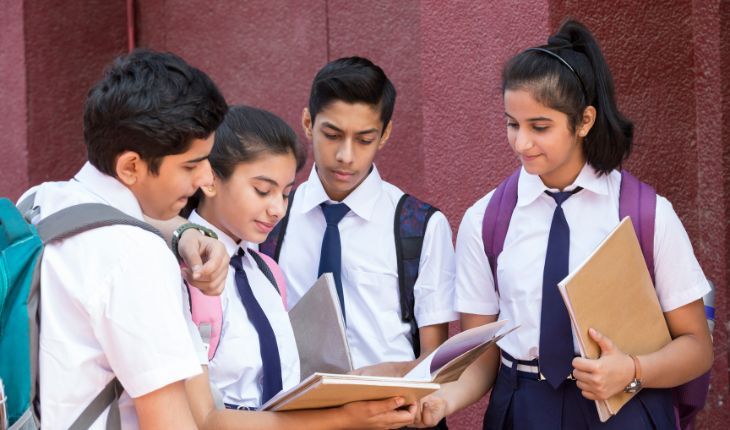In every corner of the world, the word “school” carries with it a profound meaning — a sanctuary of knowledge, a social playground, and a launchpad for dreams. Schools are far more than just institutions; they are the living canvas where personalities are shaped, creativity is sparked, and lifelong values are etched into the hearts of young learners. Behind every classroom door lies a universe of stories, challenges, discovery, and transformation.
A detailed insight from Expert Market Research emphasizes how the India School ecosystem is not only rooted in tradition but is also highly adaptive to global educational trends. This includes the integration of hybrid learning, STEAM (Science, Technology, Engineering, Arts, and Mathematics) models, and a growing focus on mental wellness. Expert Market Research notes that this evolution positions Indian schools as crucial agents in shaping not only national but also international talent pools, driven by a blend of academic discipline and cultural intelligence.
The Magic Beyond the Classroom Walls
Schooling is not confined to textbooks and blackboards. It is a holistic experience that cultivates intellect and emotion alike. The laughter echoing in corridors, the curiosity simmering during science experiments, the bonding formed over shared lunch boxes, and the thrill of annual day performances — all these moments add layers of depth to a child’s development. School is where a shy child learns to raise their hand, where ideas bloom through group projects, and where discipline and empathy are quietly woven into daily routines.
With rapidly evolving educational methods, schools today are blending traditional values with modern innovation. Smart classrooms, interactive whiteboards, and hands-on learning modules are making knowledge more accessible and engaging. But even as technology advances, the heart of schooling remains the human connection — the mentor-mentee relationship between teachers and students that can spark a lifetime of ambition.
Nurturing the Roots of Global Citizens
A school’s true mission extends beyond academic excellence. It aims to build responsible citizens who are prepared to face the real world with integrity, resilience, and an open mind. Through sports, arts, civic engagements, and extracurricular clubs, schools provide students with exposure to varied experiences that help identify talents and interests beyond the syllabus.
Values such as teamwork, leadership, time management, and empathy are cultivated here — not through formal instruction, but through everyday interactions, guided reflections, and learning from failure. Schools become the microcosm of society, teaching students how to navigate differences, collaborate with peers, and stand up for what they believe in.
Spotlight on India School: A Legacy of Learning and Innovation
India, with its rich cultural heritage and deep-rooted respect for education, showcases a fascinating blend of ancient wisdom and modern pedagogy. The India School system has evolved dramatically over the years — from traditional gurukuls and colonial-era classrooms to a modern landscape peppered with international boards, experiential learning, and digital education platforms.
Today, Indian schools are known for their academic rigor, but they are also making strides in creating more inclusive and holistic learning environments. Many schools across metropolitan cities and rural belts alike are adopting multilingual teaching strategies, life skills training, and emotional intelligence programs to better prepare students for today’s dynamic world. From art-integrated curriculums in Delhi to sustainability-focused modules in Kerala, the educational map of India reflects both diversity and ambition.
Creating Safe Havens for Creativity and Growth
The physical and emotional environment of a school has a profound impact on a child’s performance and mental well-being. A nurturing, inclusive space where students feel seen and heard encourages creativity and confidence. Modern schools are beginning to invest in emotional literacy, peer counseling, and inclusive education policies that cater to students of all learning abilities.
Moreover, the architectural design of schools now often reflects this shift — with open learning spaces, nature-integrated campuses, and flexible seating arrangements promoting better interaction and reduced stress. When children enjoy the space they learn in, they begin to associate learning with joy rather than pressure — and this emotional association can make all the difference.
Teachers: The Silent Architects of Tomorrow
No discussion about schools can be complete without acknowledging the role of teachers. These unsung heroes are the anchors in a student’s academic journey. Beyond delivering lessons, they play the role of guides, counselors, motivators, and often, parental figures. The influence of a great teacher extends far beyond the classroom — it can shape aspirations, build confidence, and ignite a lifelong passion for learning.
Training and empowering teachers is, therefore, essential to nurturing high-quality educational environments. Schools that prioritize teacher development — both in pedagogy and emotional intelligence — tend to foster healthier, more dynamic learning spaces.
The Future School: A Vision Worth Building
As the world grapples with change — technological, environmental, and cultural — schools are tasked with preparing the next generation to adapt, innovate, and lead. The school of the future won’t just teach facts but will help students think critically, communicate effectively, and act ethically. It will be a place where students learn how to learn, question, collaborate, and solve real-world problems.
Education is no longer about memorizing; it’s about making meaning. It’s about preparing children not just for exams, but for life. Schools that embrace this philosophy will thrive as beacons of hope, creativity, and resilience.
